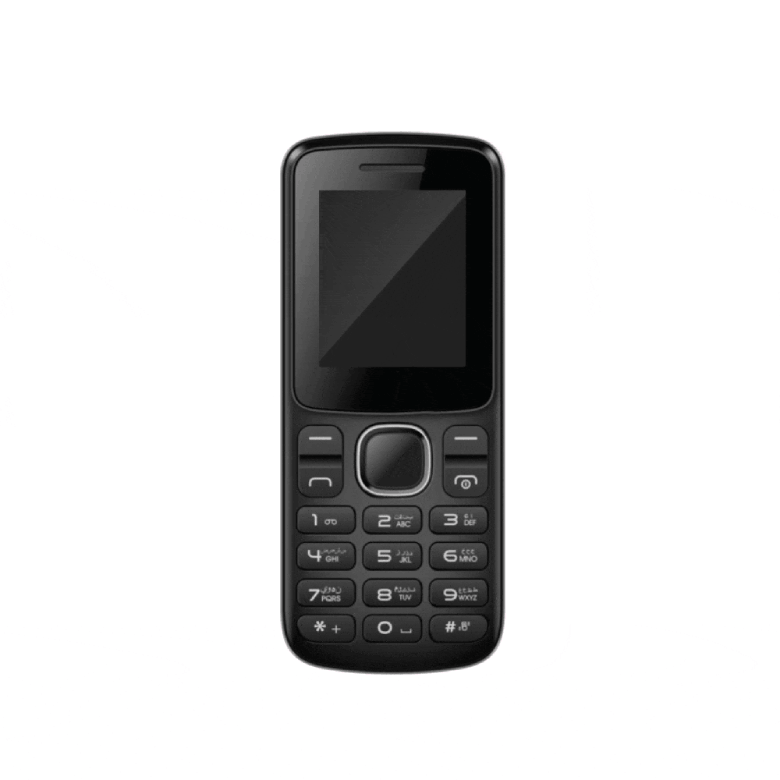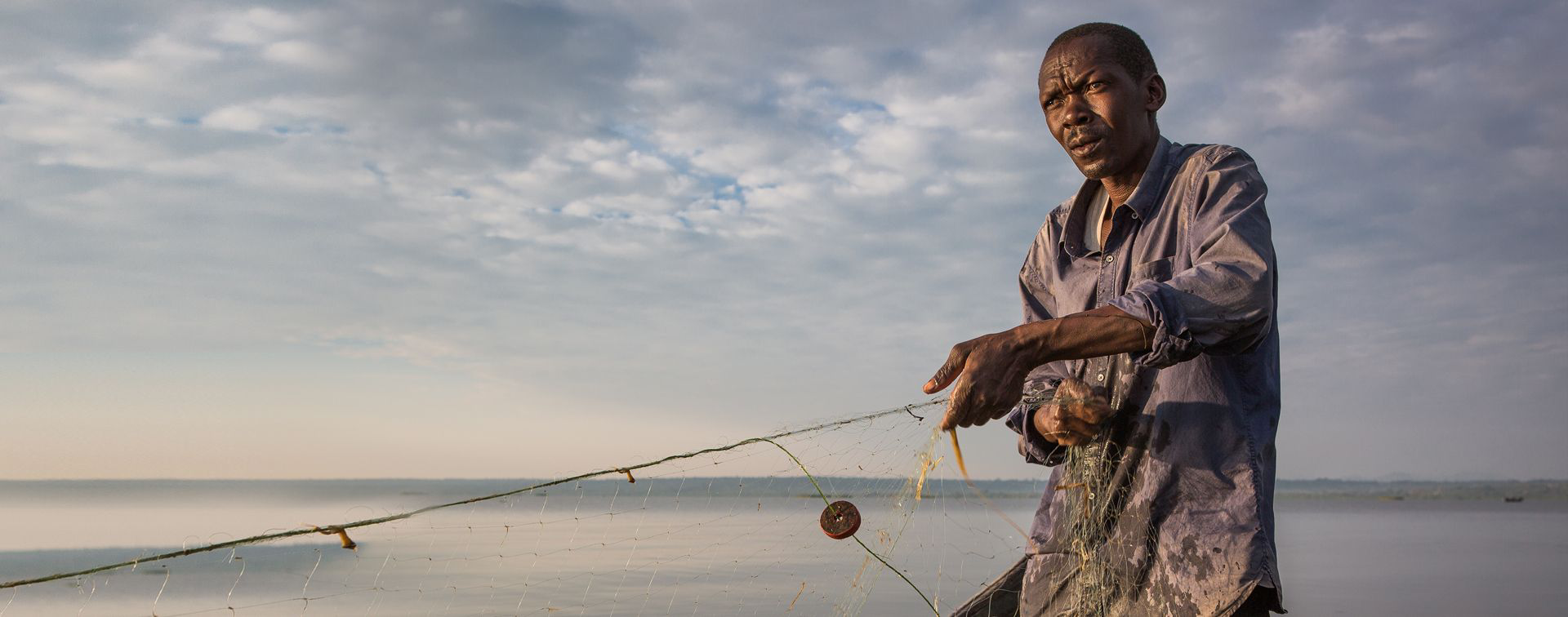In Malawi, a fisherman named Silent sells dry fish for his livelihood. With only his simple mobile phone connecting him to the world, he uses the Viamo Platform to check daily weather information so he knows when the weather is prime to dry his fish.
In Rwanda, a young woman who faces domestic violence calls into the Viamo Platform with a free and easy three-digit national hotline number to be discreetly connected with a lawyer. She does not have to leave home to get the legal advice she needs.
Each of these people has something in common: they have full agency to access the services they need when given the means, a simple digital solution in a complex system of resources.
In the past few years, there has been a rallying cry to shift power dynamics in international aid to redistribute the power to the communities being served. The relics of colonialism seen in international development practices have been challenged through organizations such as PeaceDirect and Bond, who advocate for decolonizing aid.
As a result of this movement, aid organizations are taking a much needed inward look and learning how to decolonize aid and their broader work, turning away from crafting solutions for communities and co-creating solutions with communities.
In demand-driven development, there is currently no greater tool to restore power imbalances than digital solutions, which decentralize power by design by placing it into the users’ hands.
In the wake of global COVID-19 lockdowns, organizations found themselves scrambling to create digital solutions to sustain their programs and impact. Digital solutions not only have the scale that traditional development lacks, but, when implemented with communities, provide sustainable behavior change solutions that work.
Bringing the power of the internet to the digitally disconnected
Every month, millions of people use the Viamo Platform for the same reason people browse the Internet: to access on-demand information, find nearby services or purchase products.

The difference is that the information is made accessible free of charge, through a national telecommunications provider and through simple mobile phones, which are ubiquitous for such communities.
For example, more than 70 percent of all refugees have mobile phones and more than 90 percent have access to 2G or 3G networks, according to a UNHCR and Accenture study.
Available globally in 22 countries and growing, Viamo’s Platform allows people to dial a toll-free short code number on any mobile phone. Callers are then presented with a menu in their native language. Following voice prompts, they can choose to listen to topics such as family planning options, agricultural techniques or workforce development and job skills training, specially messaged in co-creation workshops and with extensive partnerships.
“Our end users are disproportionately affected by the reality of climate change,” said Viamo Co-Founder and CEO David McAfee. “In response, we feature a large amount of environmental content on our platform: fishermen consult Viamo’s weather forecast, farmers listen to key climate-smart content that updates according to the agricultural calendar. They also sell their crops in our agricultural marketplace. People sign up for our early warning alerts during extreme weather events.”
But many sectors are featured from global health to agriculture. Partners upload tailored content on the Viamo Platform to disseminate information. But the content isn’t pushed onto listeners. Each caller selects which topics they wish to engage with at a time that serves them best.
”“That’s pretty amazing when you think about it. How it's sort of disruptive compared to the normal paradigm. It’s really making things accessible to everyone, multiple things, in their moment of need. And it’s sustainable.”
Louis DorvalViamo Co-Founder and COO
Viamo has yielded 400 million engagements with more than 50 million people in just the last two years, giving voices to communities previously unmeasured or with limited reach and representation.
“If I’m a donor and I want to make tuberculosis medicine available on this project, I think, ‘what about the people who don’t need tuberculosis medicine for now? Or the people that need tuberculosis medicine five years from now?’” Dorval said.
“When you play a jingle on the radio about tuberculosis, if you’re not thinking about tuberculosis right now, you’re not really interested. But when you need that information six months from now, you can’t suck it out of your radio. Viamo solves those issues.”
Scalable solutions for tech infrastructure barriers to gender
Ghana is the largest exporter of unrefined shea butter in the world. But the cocoa value chain from which it is derived is made of collectives of businesses that are often at a disadvantage. The disadvantages are caused by a lack of understanding surrounding the laws that benefit them.
Viamo worked with OXFAM and local partners to launch educational content in six languages on the Viamo Platform. The messages focused on improving the socio-economic futures of women in the shea butter and cocoa value chain in Ghana.
In a baseline survey prior to the project, results showed a medium to low level of knowledge regarding laws and rights that help protect the interest of women working in the value chain. After listening to the messages, more than 80 percent of participants shared that the program increased their ability to individually and collectively overcome legal and social barriers to participating in agricultural and economic activities.
With more than 600,000 women across the shea and cocoa supply chain in Ghana, mobile technology can rapidly support securing an equitable economic future for women in low-resource settings.
Viamo’s team of experts communicates directly with users to understand their needs while examining data on how they interact with our services. All of Viamo’s services, including its platform, are built using human-centered design.
Using Interactive Voice Response (IVR) also bypasses the challenges of lower literacy rates making content adaptable to any language. In 2021 alone, Viamo had messages translated into more than 50 languages.
Pandemic and natural-disaster readiness
Mobile data is prohibitively expensive in the Democratic Republic of Congo, presenting a unique challenge to disseminating accurate and up-to-date information in the face of emerging health crises, such as COVID-19.
To mitigate this when implementing a WorldVision project, Viamo leveraged existing networks of community faith leaders to help spread accurate public health information. Due to their local influence on the community, the faith leaders served as a bridge between their flock and community health workers.
With no need for a smartphone, internet connection or even call credit, SMS health messages were delivered and proved to be a very accessible form of communication, even in remote areas.
Content created for our digital services can be tailored based on the detailed profiles of subscribers. This allows for greater impact than traditional generic, mass-market messaging efforts.
When Plan International in Nepal commissioned Viamo to conduct a nationwide digital survey on women’s welfare, we targeted 7,800 girls and young women. Research questions addressed the implications of COVID-19 on gender-based violence, child marriage and sexual reproductive health.
Similarly, implementing a Research for Scalable Solutions’ family planning digital survey in four countries, our digital tools reached more than 13,000 women. The results showed that more than a third of Ugandan women shared that their pregnancies were a direct result of the difficulty in accessing proper family planning care due to government restrictions on travel and family planning center closures in the wake of COVID-19.
Amplifying impact
In Madagascar, 50,0000 farmers registered to receive more information on climate insurance after playing an interactive mobile phone game about adapting to climate change on the Viamo Platform.
Across a range of subjects, entertainment education promotes learning. The Viamo Platform has been paired with other value-added services to successfully amplify reach and impact.
Created in partnership with Peripheral Vision International (PVI), Wanji Games increased user engagement while helping users gain a deeper understanding of topics by exploring complex stories.
Inspired by choose-your-own-adventure books, players can choose fictional characters using IVR, all delivered via a basic mobile phone.
The COVID-19 version of the games reached 2.7 million people in 11 countries in 2020.
Where a phone line is a lifeline
After listening to health information on the Viamo Platform, Ellena became the first woman in her community to give birth at a health center rather than at home. The mother of five lives in Southern Malawi where she is a two-hour walk away from a health facility.
Ellena called the Chipatala Cha Pa Foni – (Health Center by Phone – CCPF) hotline seeking medical advice after weeks of persistent headaches. A nurse advised Ellena to consult a doctor about the possibility of pregnancy and to rule out malaria. Following her pregnancy confirmation, Ellena called the hotline again for advice about prenatal care, proper nutrition and the effects of hormonal changes during pregnancy.
To ensure that people like Ellena have ready access to health information, Viamo developed a toll-free national health hotline and message service in partnership with VillageReach. Viamo then passed on the successful implementation, and Malawi’s Ministry of Health took over ownership of the hotline in 2020.
With the rapidly expanding needs of people living in low-resource environments, the future of demand-driven development must be digital. The scalability of digital solutions and access to information users actually need makes digital not only the smart solution, but the easiest.
“The information from the [Viamo Platform] and the service from CCBR has changed my life,” said Asha, a mother who received fistula surgery after accessing health guidance on the Viamo Platform. “Both have gotten me to a better place.”




